Reporting from Buenos Aires, Argentina
The III Continental Assembly of ALBA-Movements was held in Buenos Aires, Argentina, from April 27 to 1st. May 2022. It is an articulation of social and popular movements that belong to countries that are not part of the Bolivarian Alliance for the peoples of Our America (ALBA). ALBA was founded in 2004, promoted by Hugo Chávez and Fidel Castro, within the framework of the rejection of the FTAA, which the United States tried to impose in Latin America.
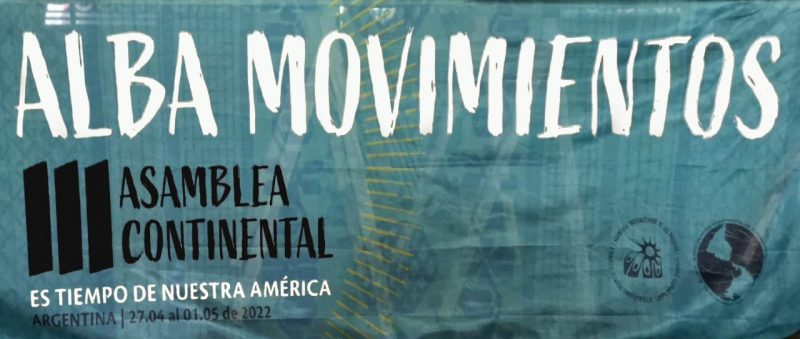
Currently, ALBA-Movements are being the voice for over 400 social, rural, feminist, indigenous, urban and student organisations from more than 23 countries of the American continent, as well as allied movements in Africa, Asia, Europe, and Oceania. Among the social references, participated in this III Assembly, are; the Honduran activist Berta Zúñiga (daughter of the environmentalist and feminist Berta Cáceres); Bolivian Sacha Llorenti, executive secretary of ALBA-TCP; the independence leader of Puerto Rico, Oscar López Rivera; the Peruvian leader Zaira Arias; and the Vice Minister of Foreign Affairs of Venezuela for North America, Carlos Ron, who is also the president of the Simón Bolívar Institute for Peace and Solidarity of Peoples (ISB).
On behalf of the host country, Argentina, the general secretary of the Union of Workers of the Popular Economy (UTEP), Esteban Castro; the leader of the Movement of Excluded Workers (MTE), Juan Grabois; the mayor of the town of Moreno, Mariel Fernández; Buenos Aires legislator, Ofelia Fernández; among other social and political leaders were present.
From other countries in the region, spokespersons from the Great Fatherland Front; the National Indigenous Peasant Movement – La Vía Campesina (MNCI/LVC); the Movement of Rural Landless Workers (MST) of Brazil; the Patriotic March and Congress of the Peoples, of Colombia; the Martin Luther King Memorial Center (CMMLK); and the National Association of Small Farmers, from Cuba attended.
Delegates from the Committee for Peasant Unity, from Guatemala; the Plateforme Haïtienne de Plaidoyer pour un Développement Alternatif (PAPDA), from Haiti; the National Front for the Defense of Economic and Social Rights (FRENADESO), of Panama; The Board, from Peru; the Movement of Residents and the Bolívar and Zamora Revolutionary Current, from Venezuela also participated.
United World participated in this important meeting and had the opportunity to interview outstanding leaders of the Latin American and Caribbean popular field, as well as from other latitudes. Here are some of their impressions:
Laura Capote (Colombia), member of the Patriotic March of Colombia and of the ALBA-Movements Secretariat, tells us a little more about the III Assembly of social movements towards ALBA.
What is ALBA-Movements?
It is a continental articulation of social movements that has been building a process of Latin American and Caribbean unity since 2013. Although the process began much earlier, in 2013, our founding Assembly was formed and with the clear horizon of building a unified Great Homeland (la Patria Grande) for the construction of Afro-Indian, as well as Caribbean and Feminist Socialism for Our America (Nuestra América), we embarked on a path of unity between social and popular organizations.
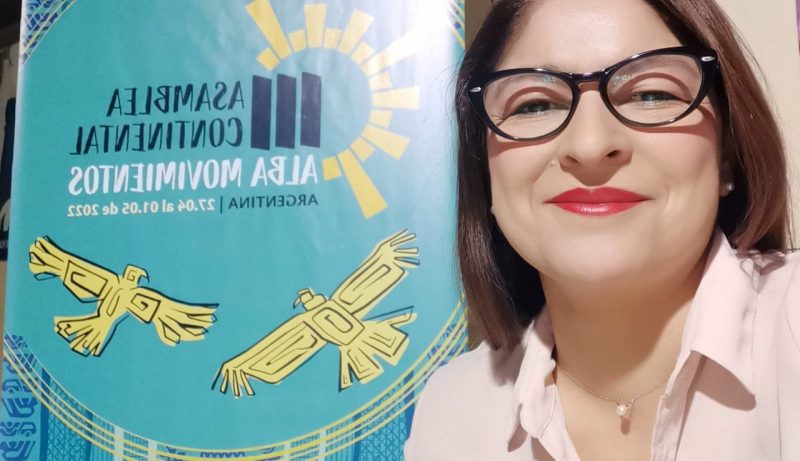
So, we are in this III Assembly, to continue drawing our main lines of continental struggle for our peoples.
What is the importance of these meetings?
These meetings are fundamental after all the time we spent without meeting, let us mention that our II Assembly was held in 2016 and due to the Covid19 pandemic we could not meet until now, 2022. Meeting again, meeting with our comrades in struggle, learning the realities of Latin America and the Caribbean from their own voices, all this is essential for creating future lines of action against imperialism.
What are the next steps?
Articulation and more articulation in order to be able to move forward in the construction of the socialism that we have dreamed of so much. When we think of articulation, it is only among the peoples of Latin America, but among the people of the whole world. That’s why, comrades from Europe, Asia, Africa have been invited and they were present. Because the struggle unites us, our enemy is one: US imperialism and within this framework, we need to build strategies as fraternal peoples.
The only way to win big fights is to organize ourselves from the grassroots. The organization between fraternal peoples and the territorial organization itself in every corner of our countries, will make our victories possible.
For us, internationalism is the real key to building a world where we are truly free, truly human. Just as in Latin America, all the peoples of the world who are fighting against imperialism have our solidarity. We also hope that the Turkish people show solidarity and unite with the struggle of Our American people.
Camille Chalmers (Haiti), spokesperson of the Roots Political Party and leader of the Haitian Advocacy Platform for Alternative Development (PAPDA), said that their social organizations have “defined as a priority the construction of international solidarity networks to confront the US imperial domination, therefore, we are also members of ALBA and also of the Assembly of the Peoples of the Caribbean.”
What are your impressions about this ALBA-Movements meeting?
It is a very important area of articulation. ALBA-Movements offers us the opportunity to know how we can work in each movement, it helps us to overcome the fragmentation in our struggles and to have more consistency to be in more coherence, to strengthen ties, in order to create common strategies.
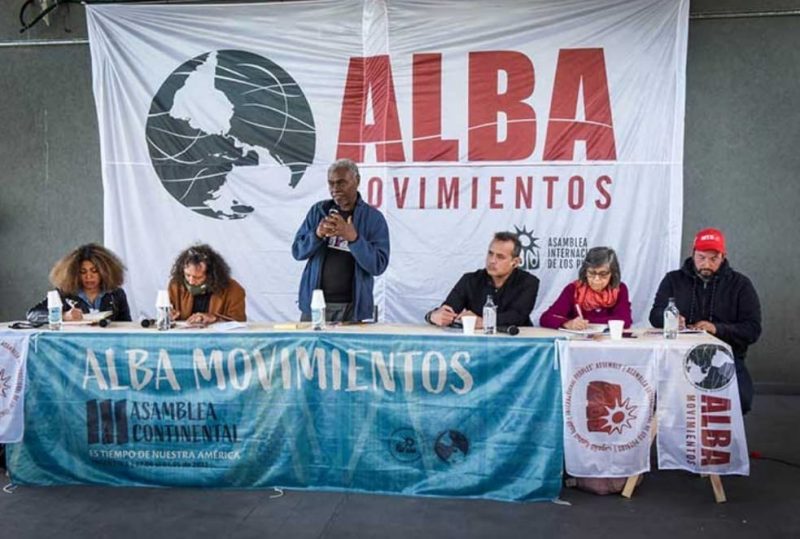
At these meetings, we improved a lot that allows us not only to diagnose the crisis of the capitalist system, but also to see how to get out of this crisis, how to develop ways to break away from the mentality of imperialist domination.
How is the ALBA-Movements reflected on other continents?
From the beginning, we always thought that we must articulate with other movements in other countries, taking up a bit the experience of the Tricontinental of the 1960s. In the current situation it is also very important because we find ourselves in a moment of hegemonic transition, of redefinition of international relations. In this regard, it is essential to be able to establish solid alliances with other movements in Asia, Europe, Africa, Oceania… And this allows us to move forward in our struggles, because, precisely, one of the strategies of the empire is to isolate people, by building barriers between them. We must break off with that dynamic, unite and connect with the struggles of other peoples outside of Latin America and the Caribbean, who are fighting for the same thing, despite being far away: for freedom, for justice, to end the hunger etc.
What do you take out of this meeting and what happens next?
We feel more confident, strength and full of inspiration… In this III Assembly of ALBA-Movements we learned a lot from the struggles in our countries, especially from the experiences of resistance at the local level, which is often not fully known because it has no national and international impact.
What’s next is to continue deepen the articulation to keep building ALBA-Movements, but also to strengthen the International Assembly of Peoples with a global projection of the globalization of peoples’ struggles.
Chalmers also took the opportunity to send greetings to the Turkish people: “Turkey’s participation in the struggles of the peoples of Latin America and the world, its participation in libertarian struggles is very important for a claim that there may be another kind of relationship between man and nature.”
United World had also chance to chat with international comrades from other continents:
Atul Chandra (India), member of the Tricontinental Institute for Social Research, directed by Vijay Prashad, and of the International Assembly of Peoples, Asia chapter.
What do you take out of this III Assembly of ALBA-Movements?
We are here to exchange experiences, to see what we can learn from the experiences, especially, of social movements in Brazil, Cuba, and Venezuela, among others. Many people from Asia are looking at the organizational experiences that are taking place in Latin America and the Caribbean. We are inspired by these experiences and we learn from them.
The platform of the Assembly of social movements towards ALBA allows us to exchange ideas, share visions, and better understand our realities. One of the fundamental principles of the internationalist struggle is the need to unite our struggles, to become stronger, to confront imperialism. If we are torn apart, divided, we will not only be alone in the struggle but also will face even more unequal confrontation.
We need to build alliances, bridges that unite us and give us mutual support. That is why we are here to support the struggles in Latin America and the Caribbean, and to learn from the experiences of organizing and resistance in Asia, and vice versa for movements in this region.








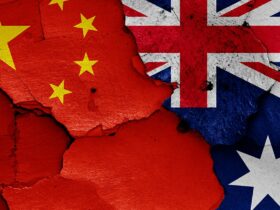

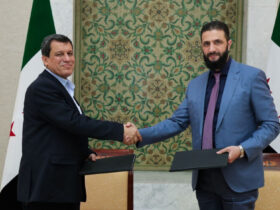
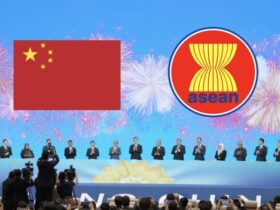
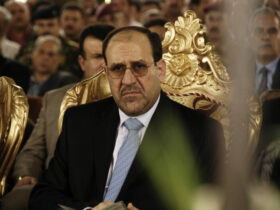
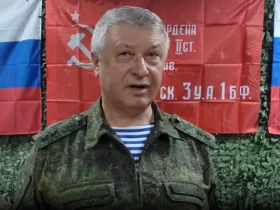
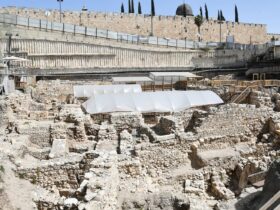

Leave a Reply